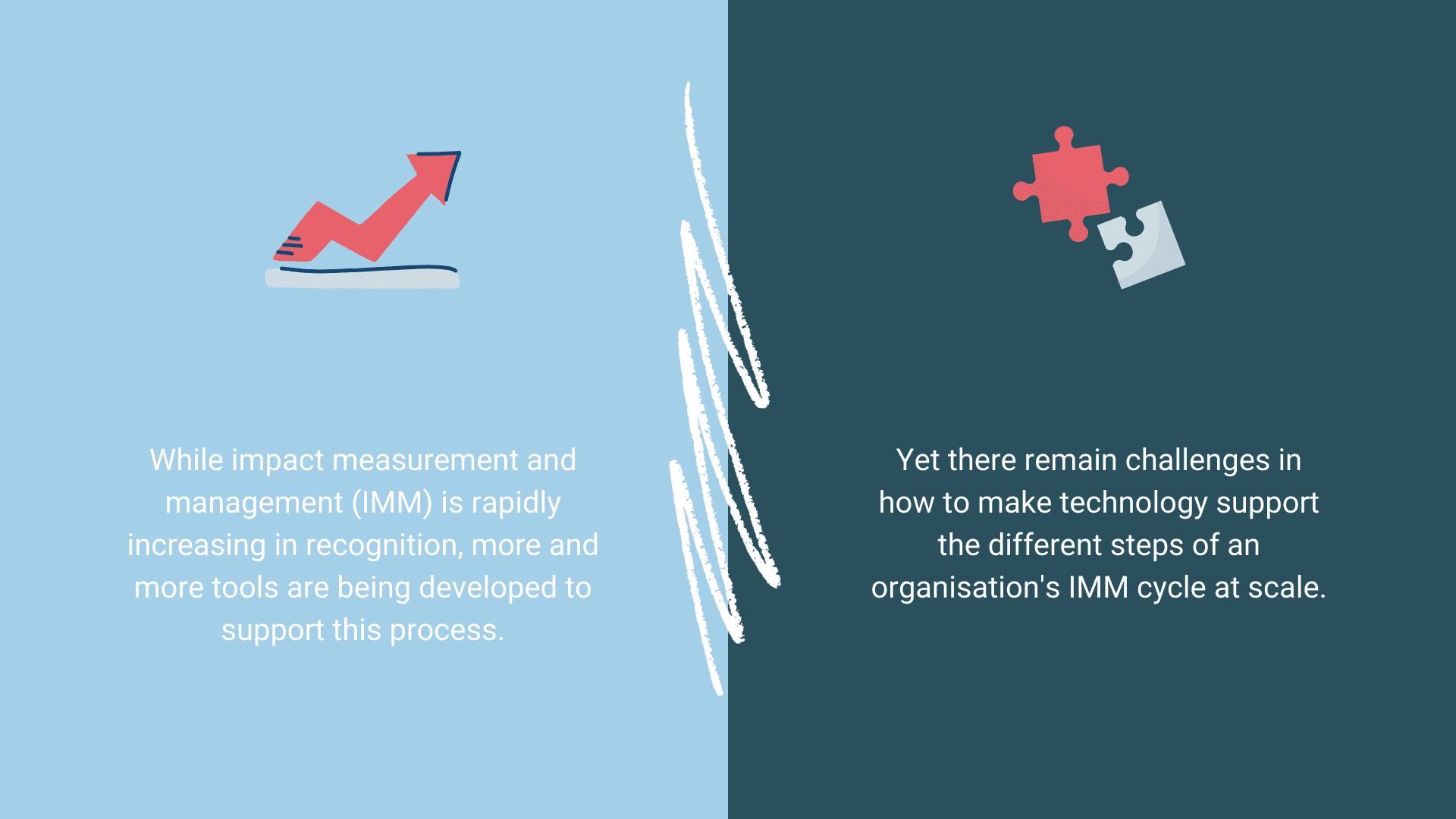As global economies approach the fourth industrial revolution, the role of technology is becoming an increasingly popular topic. In our latest webinar, Unmesh Sheth (CEO, Sopact) and Veronica Olazabal (Managing Director, Measurement, Evaluation and Organizational Performance, The Rockefeller Foundation) broke down the role of technology in real impact management and impact data. What do we need to pay attention to when speaking about impact data at scale? Why should impact-driven organisations prioritise this topic? And how can technology support practitioners on this journey?
Keep reading for the key takeaways from the webinar and don’t forget you can watch it back here.
The call for integrity and inclusivity in impact data
Veronica Olazabal

Impact data as a means to learn and justify efforts
“As your organisation grows, you need to start gathering effective, qualitative and continued data to help understand the outcomes better and faster”
The perks of technology in impact management
Veronica Olazabal
Nothing comes without risks and limitations
Ben Carpenter
Conclusion

Impact Measurement: Applying the Principles of Social Value and SROI
Get access to the full webinar recording!









